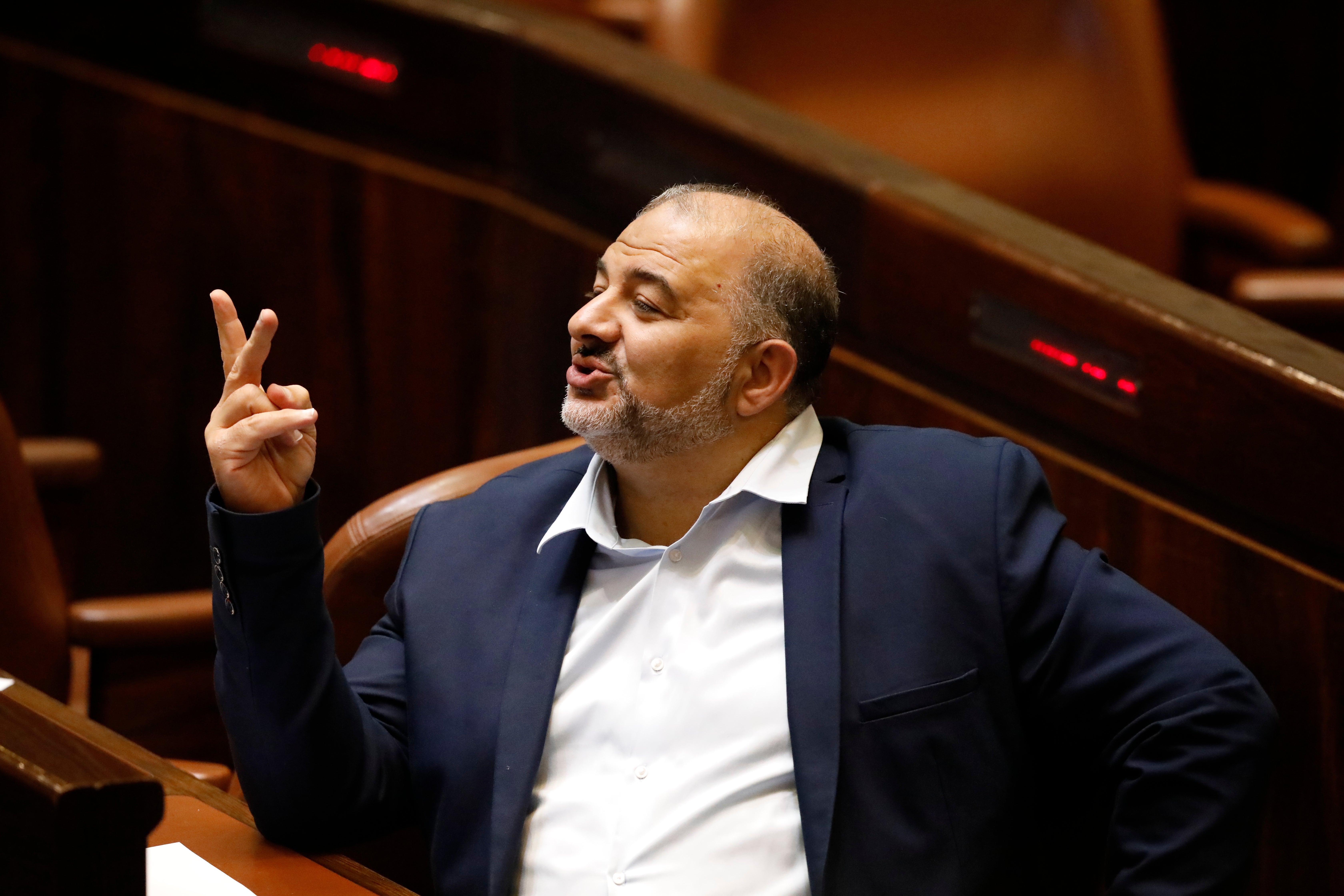Arab party leader in Israel rejects 'apartheid' label
The head of an Arab party in Israel says he would not use the word “apartheid” to describe the situation inside the country

Your support helps us to tell the story
From reproductive rights to climate change to Big Tech, The Independent is on the ground when the story is developing. Whether it's investigating the financials of Elon Musk's pro-Trump PAC or producing our latest documentary, 'The A Word', which shines a light on the American women fighting for reproductive rights, we know how important it is to parse out the facts from the messaging.
At such a critical moment in US history, we need reporters on the ground. Your donation allows us to keep sending journalists to speak to both sides of the story.
The Independent is trusted by Americans across the entire political spectrum. And unlike many other quality news outlets, we choose not to lock Americans out of our reporting and analysis with paywalls. We believe quality journalism should be available to everyone, paid for by those who can afford it.
Your support makes all the difference.The head of an Arab party in Israel who made history last year by joining the governing coalition said Thursday he would not use the word “apartheid” to describe relations between Jews and Arabs within the country.
Amnesty International last week joined two other well-known human rights groups in saying that Israel's policies toward the Palestinians within its borders and in the occupied territories amounts to apartheid. Israel rejects those allegations as antisemitic, saying that, among other things, they ignore the rights and freedoms enjoyed by its Arab citizens.
“I would not call it apartheid,” Mansour Abbas said in response to a question at an online event organized by the Washington Institute for Near East Policy, a D.C-based think tank. He noted that he was in the coalition and could join the government itself if he wanted to.
“I prefer to describe the reality in objective ways,” he added, according to the English translation of his remarks, which he delivered in Hebrew. "If there is discrimination in a certain field, then we will say that there is discrimination in that specific field.”
He did not say whether he thinks the term applies to the occupied West Bank where more than 2.5 million Palestinians live under Israeli military rule alongside nearly 500,000 Jewish settlers with Israeli citizenship. Israel captured the territory in the 1967 Mideast war, and the Palestinians want it to form the main part of their future state.
Abbas heads the United Arab List, known in Hebrew as Ra'am, a small Islamist party that gave crucial support to the coalition now governing Israel, which includes parties from across the political spectrum.
Arabs make up some 20% of Israel's population of nearly 9.5 million. They have citizenship, including the right to vote, and have a major presence in the medical profession and universities, among other fields. But they face widespread discrimination.
They have close familial ties to the Palestinians in the West Bank and Gaza and largely identify with their cause. Historically, they refused to join coalitions and were not invited to do so.
The rights groups say Israel only grants citizenship to a minority of the Palestinians under its control in an overarching system designed to ensure a Jewish majority in as much of the Holy Land as possible.
Israel views such allegations as an assault on its very existence, saying its policies are designed to ensure the survival and well-being of the world's only Jewish state.
Abbas said he's focused on bringing Jews and Arabs together to address social and economic challenges.
“I'm usually trying not to be judgmental, I'm not trying to say you're racist or the state is racist, or this is an apartheid state or not an apartheid state,” Abbas said. “My role as a political leader is to try to bridge the gaps.